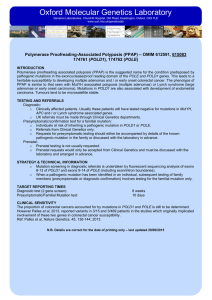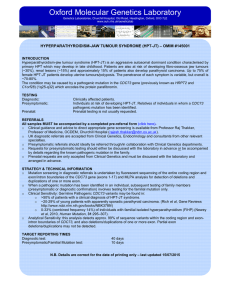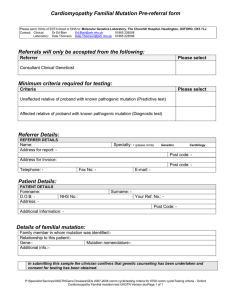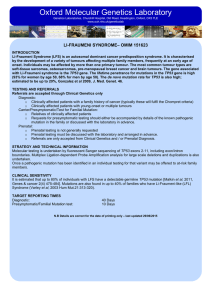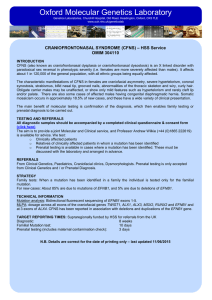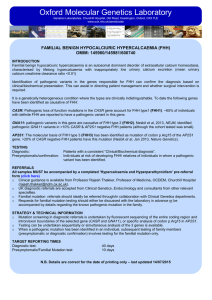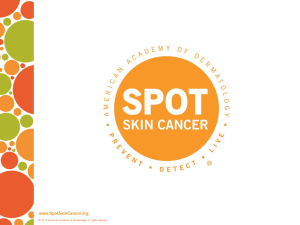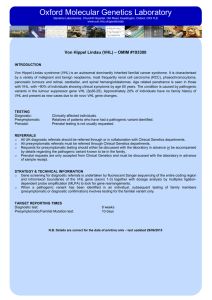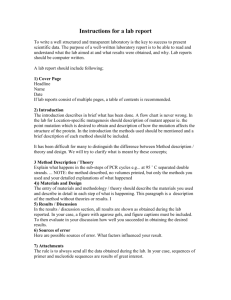Oxford Molecular Genetics Laboratory
advertisement
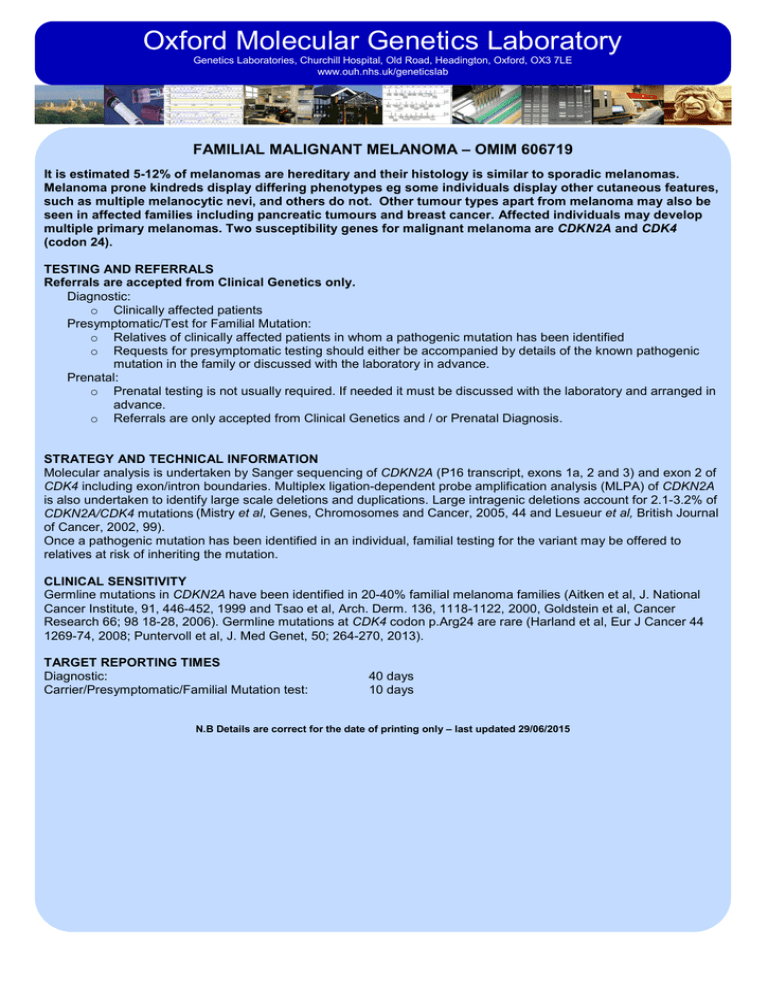
Oxford Molecular Genetics Laboratory Genetics Laboratories, Churchill Hospital, Old Road, Headington, Oxford, OX3 7LE www.ouh.nhs.uk/geneticslab FAMILIAL MALIGNANT MELANOMA – OMIM 606719 It is estimated 5-12% of melanomas are hereditary and their histology is similar to sporadic melanomas. Melanoma prone kindreds display differing phenotypes eg some individuals display other cutaneous features, such as multiple melanocytic nevi, and others do not. Other tumour types apart from melanoma may also be seen in affected families including pancreatic tumours and breast cancer. Affected individuals may develop multiple primary melanomas. Two susceptibility genes for malignant melanoma are CDKN2A and CDK4 (codon 24). TESTING AND REFERRALS Referrals are accepted from Clinical Genetics only. Diagnostic: o Clinically affected patients Presymptomatic/Test for Familial Mutation: o Relatives of clinically affected patients in whom a pathogenic mutation has been identified o Requests for presymptomatic testing should either be accompanied by details of the known pathogenic mutation in the family or discussed with the laboratory in advance. Prenatal: o Prenatal testing is not usually required. If needed it must be discussed with the laboratory and arranged in advance. o Referrals are only accepted from Clinical Genetics and / or Prenatal Diagnosis. STRATEGY AND TECHNICAL INFORMATION Molecular analysis is undertaken by Sanger sequencing of CDKN2A (P16 transcript, exons 1a, 2 and 3) and exon 2 of CDK4 including exon/intron boundaries. Multiplex ligation-dependent probe amplification analysis (MLPA) of CDKN2A is also undertaken to identify large scale deletions and duplications. Large intragenic deletions account for 2.1-3.2% of CDKN2A/CDK4 mutations (Mistry et al, Genes, Chromosomes and Cancer, 2005, 44 and Lesueur et al, British Journal of Cancer, 2002, 99). Once a pathogenic mutation has been identified in an individual, familial testing for the variant may be offered to relatives at risk of inheriting the mutation. CLINICAL SENSITIVITY Germline mutations in CDKN2A have been identified in 20-40% familial melanoma families (Aitken et al, J. National Cancer Institute, 91, 446-452, 1999 and Tsao et al, Arch. Derm. 136, 1118-1122, 2000, Goldstein et al, Cancer Research 66; 98 18-28, 2006). Germline mutations at CDK4 codon p.Arg24 are rare (Harland et al, Eur J Cancer 44 1269-74, 2008; Puntervoll et al, J. Med Genet, 50; 264-270, 2013). TARGET REPORTING TIMES Diagnostic: Carrier/Presymptomatic/Familial Mutation test: 40 days 10 days N.B Details are correct for the date of printing only – last updated 29/06/2015
